Are you a Singaporean interested in applying for a credit card? Do you already have one but want to know more about credit card credit limits in Singapore? If so, you’ve come to the right place! In this article, we’ll cover everything you need to know about credit card credit limits in Singapore.
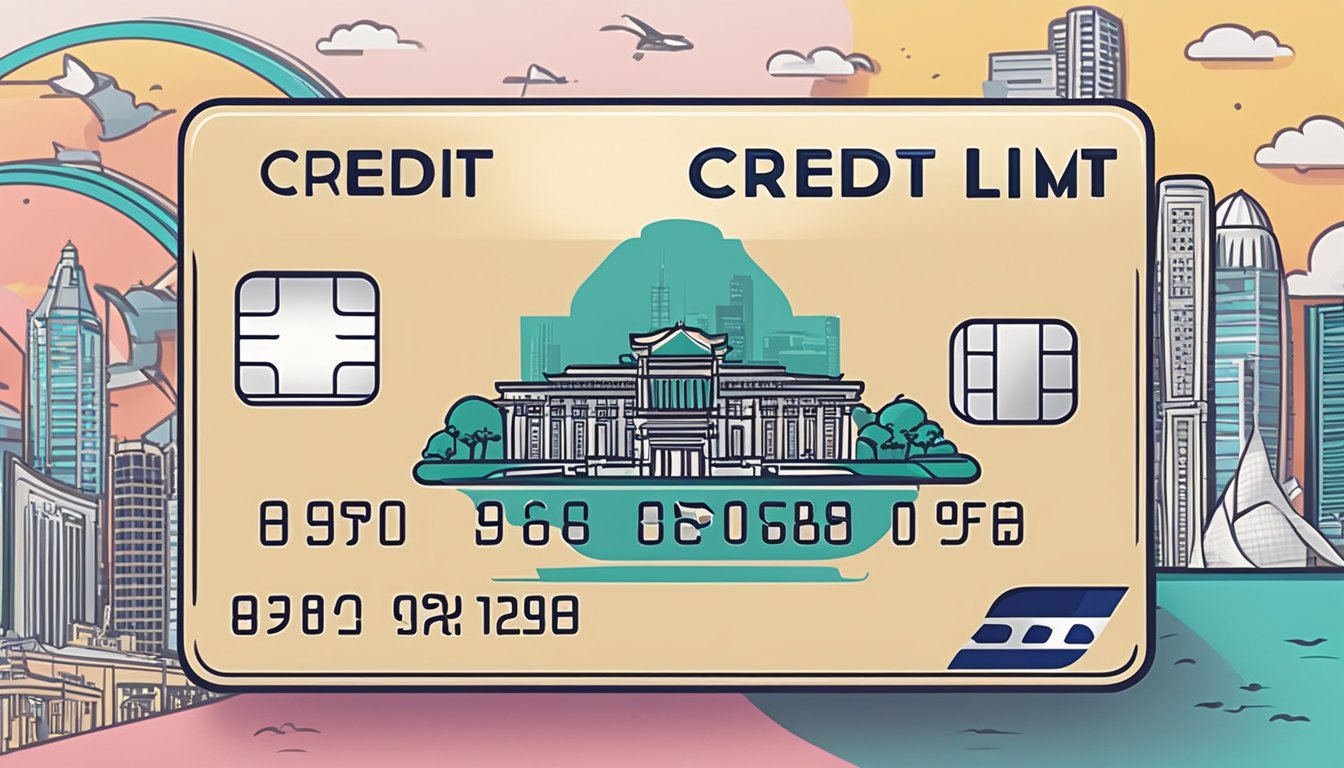
First, let’s define a credit card credit limit. Essentially, it’s the maximum amount of credit a bank or financial institution will allow you to borrow on your credit card. This limit is determined based on various factors, such as income, credit history, and spending habits. It’s important to note that your credit limit can change over time, depending on your financial situation or credit score changes.
You might be wondering what the maximum credit card limit is in Singapore. The truth is there is no universal upper limit for credit cards in Singapore.
Instead, the maximum credit limit depends on the applicant’s income level. If you earn less than S$30,000 a year, your credit limit is capped at 2X your monthly income. If you earn S$30,000 to S$120,000 a year, your credit limit is up to 4X your monthly income.
And if you earn S$120,000 or more a year, there is no regulation on your credit limit. However, it’s important to note that just because you can apply for a high credit limit doesn’t mean you should. You should only borrow what you can afford to repay to avoid debt.
1-Min Read: Singapore’s Credit Card Credit Limit
Understanding your credit card’s credit limit is crucial for responsible card usage in Singapore. This brief guide sheds light on this key concept.
Demystifying the Credit Limit
Your credit limit represents the predefined maximum amount you can borrow on your credit card. It acts as a safeguard for both you and the issuer based on your creditworthiness. Factors like income and credit history determine your limit.
The Credit Limit’s Impact
Beyond simply dictating spending power, your credit limit plays a significant role in shaping your credit score. In Singapore, a low credit utilization ratio (outstanding balance divided by credit limit) is crucial for maintaining a healthy score.
Unlocking the Secrets of Credit Limits
This guide provides a foundational understanding of credit limits. Explore our comprehensive guide for a deeper dive into strategic credit limit management, maximizing rewards, and avoiding potential pitfalls.
It empowers you to utilize your credit card effectively and build a strong financial future.
Understanding Credit Limits
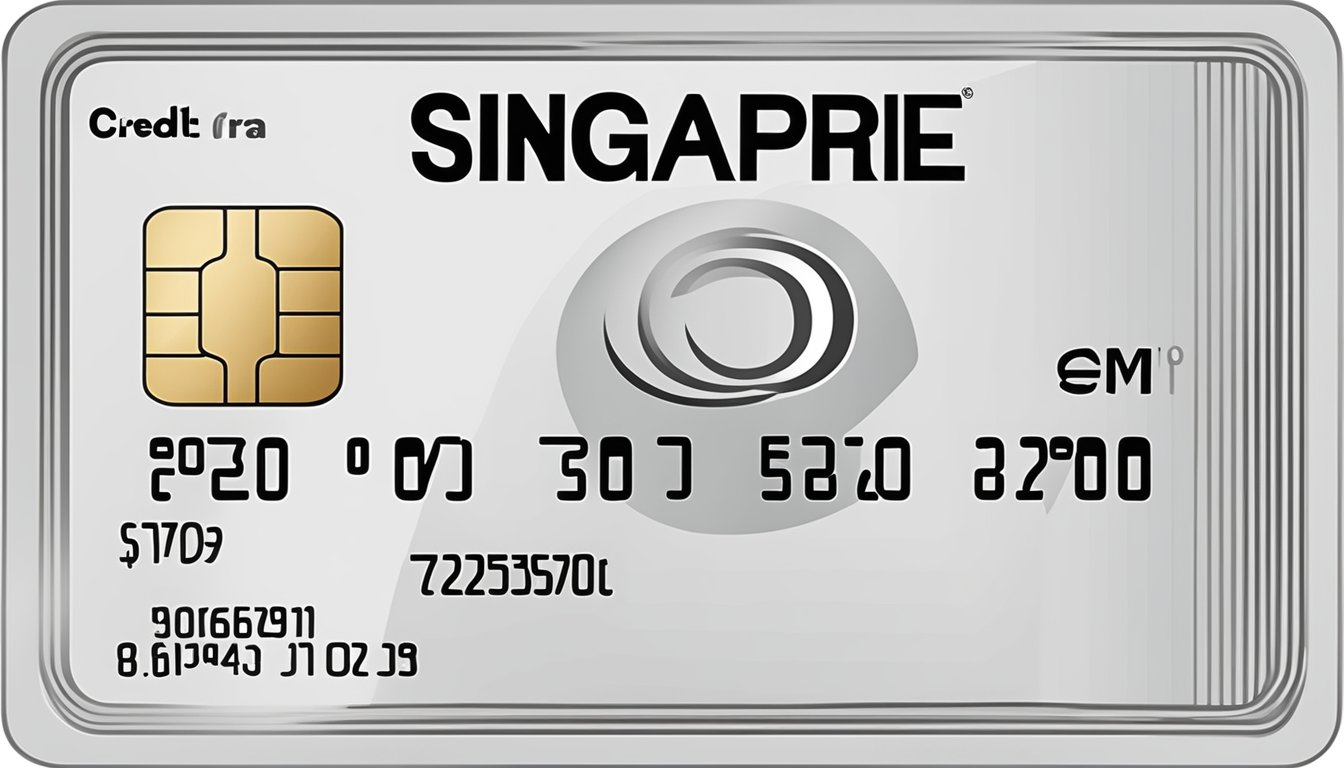
Credit cards are a popular financial tool that can help you make purchases, build credit, and earn rewards. But before you start using your credit card, you must understand your credit limit.
What Is a Credit Limit?
A credit limit is the maximum amount of money a credit card issuer will allow you to borrow. This limit is determined by several factors, including income, credit score, credit history, and creditworthiness.
Factors Influencing Credit Limits
Your credit limit is influenced by various factors, including income, credit score, credit history, and creditworthiness. Credit card issuers use this information to determine how much risk they are willing to take by lending you money.
- Income: Your income is one of the most important factors credit card issuers consider when determining your credit limit. Generally, the higher your income, the higher your credit limit.
- Credit Score: Your credit score is a measure of your creditworthiness. The higher your credit score, the more likely you are to be approved for a credit card with a higher credit limit.
- Credit History: Your credit history reflects your past credit behavior, including how much credit you have used, how often you have made payments on time, and how long you have had credit accounts open. A good credit history can help you qualify for a higher credit limit.
- Creditworthiness: Your overall creditworthiness is a measure of how likely you are to repay your debts. Credit card issuers use this information to determine your credit limit.
Credit Limit vs Available Credit
It’s important to understand the difference between your credit limit and your available credit. Your credit limit is the maximum amount of money that you can borrow. Your available credit is the amount of money that you have left to borrow.
For example, if you have a credit limit of £5,000 and you have used £2,000, your available credit would be £3,000. It’s important to keep track of your available credit so that you don’t exceed your credit limit and incur fees or penalties.
In summary, understanding your credit limit is crucial when using credit cards in Singapore. Your credit limit is influenced by various factors, including your income, credit score, credit history, and creditworthiness. Knowing the difference between your credit limit and available credit can help you avoid fees and penalties.
How Credit Limits Affect Financial Health
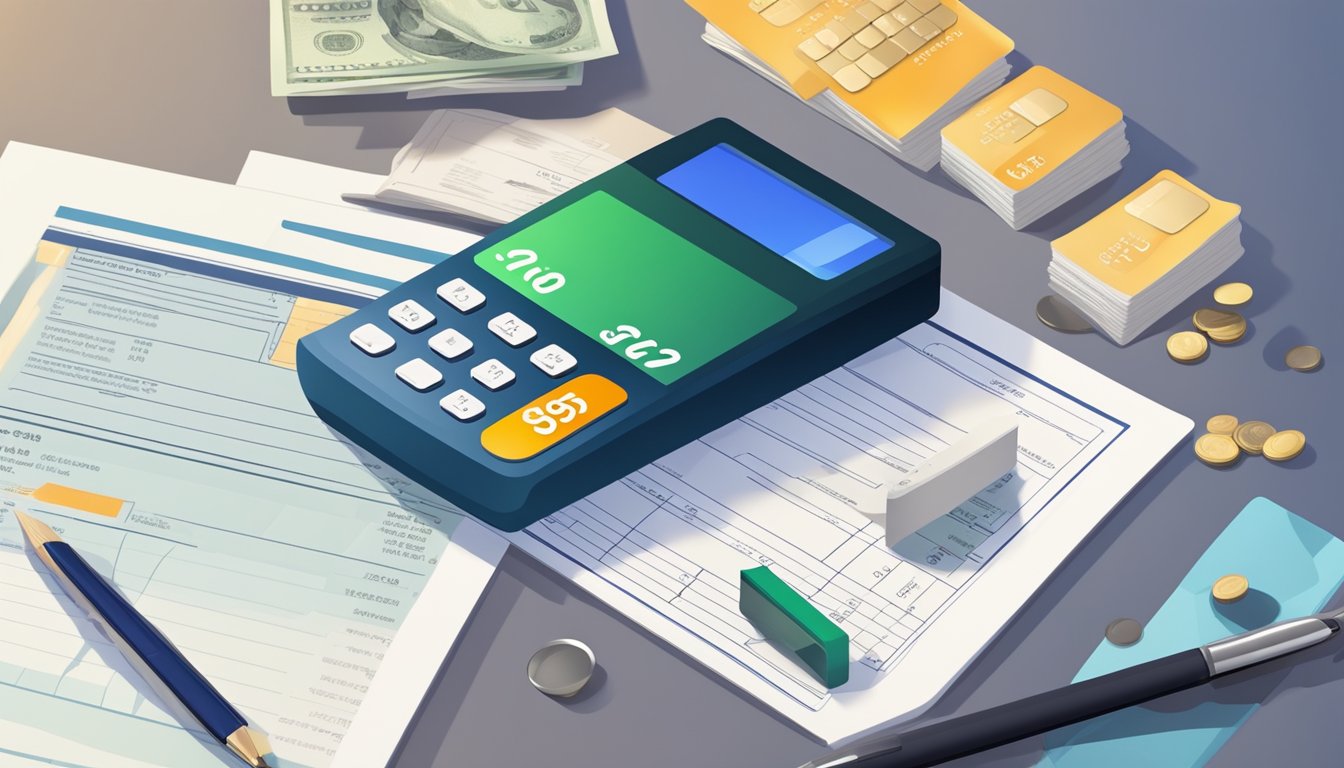
Your credit card credit limit is the maximum amount that you can borrow on your credit card. Understanding how credit limits affect your financial health is crucial to ensure that you use your credit card responsibly and maintain a good credit score.
The Role of Credit Utilisation Ratio
Credit utilisation ratio is the percentage of your credit limit that you use each month. It is calculated by dividing your credit card balance by your credit limit. A low credit utilisation ratio indicates that you are using your credit card responsibly and not relying too heavily on credit.
It is recommended to keep your credit utilisation ratio below 30% to maintain a good credit score. If you consistently use more than 30% of your credit limit, it can negatively impact your credit score and make it harder to get approved for loans and credit in the future.
Impacts on Credit Score
Your credit score is a measure of your creditworthiness and is used by lenders to determine your ability to repay loans and credit. Your credit limit plays a significant role in determining your credit score.
If you have a high credit limit and low credit utilisation ratio, it can positively impact your credit score. However, if you have a low credit limit and consistently use a high percentage of it, it can negatively impact your credit score.
Managing Debt and Repayments
Managing your debt and making timely repayments is crucial to maintaining a good credit score and financial health. It is important to ensure that you can comfortably afford your monthly repayments and avoid missing any payments.
If you consistently miss payments or make late payments, it can negatively impact your credit score and make it harder to get approved for loans and credit in the future. It is recommended to set up automatic payments or reminders to ensure that you never miss a payment.
In summary, understanding how credit limits affect your financial health is crucial to ensure that you use your credit card responsibly and maintain a good credit score. By keeping your credit utilisation ratio low, managing your debt and making timely repayments, you can maintain a good credit score and financial health.
Applying for a Credit Card in Singapore
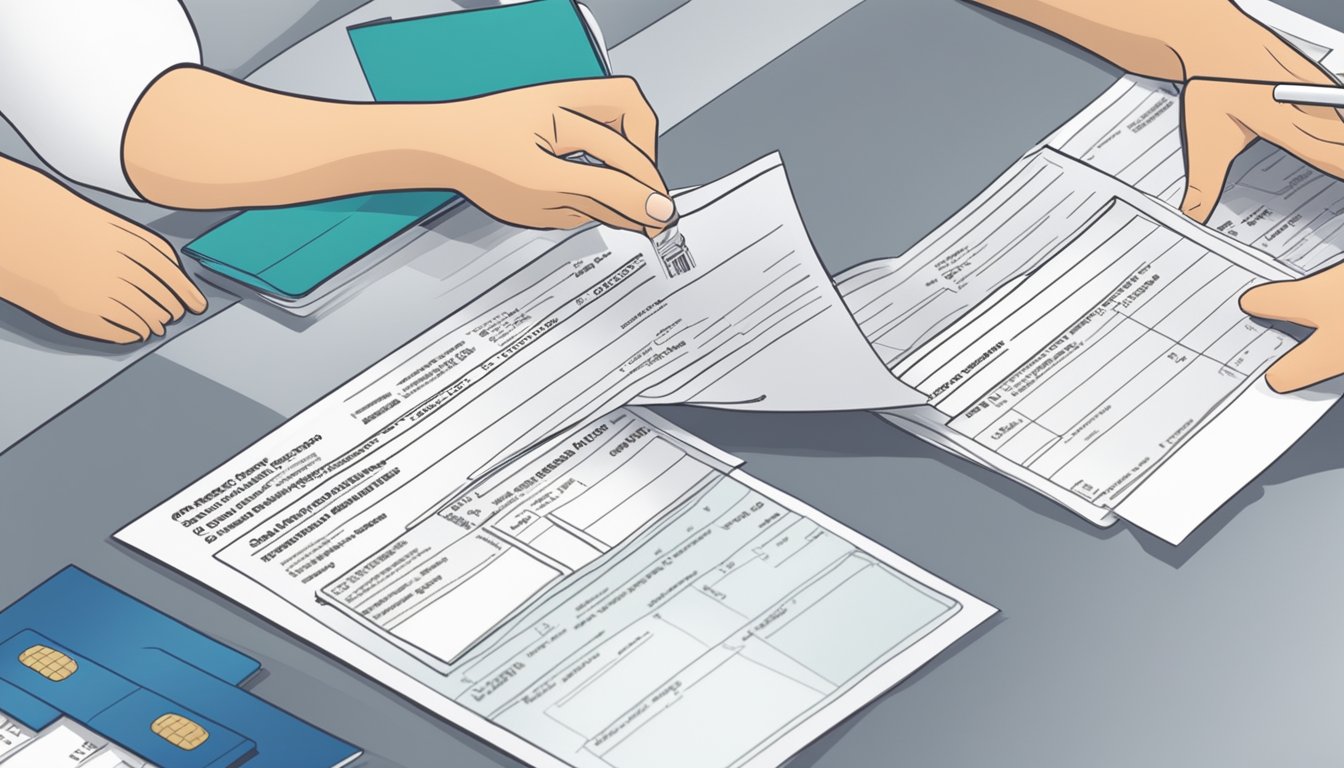
Eligibility and Required Documents
When applying for a credit card in Singapore, you must meet certain eligibility criteria. You need to be at least 21 years old and have a minimum annual income, which varies depending on the type of card you are applying for. The required documents typically include proof of identity, such as your NRIC or passport, as well as proof of address, such as a recent utility bill or bank statement.
Income Documents and Verification
To verify your income, you will need to provide documents such as your latest payslips, income tax assessment notices, or CPF statements. The bank will use these documents to assess your ability to manage credit and determine your credit limit.
Understanding MAS Guidelines
The Monetary Authority of Singapore (MAS) sets guidelines for credit card issuers regarding credit limits. These guidelines are based on your income, net financial assets, and net personal assets. It’s important to understand these guidelines to have a clear idea of what credit limit you may be eligible for.
Maximising Credit Card Benefits
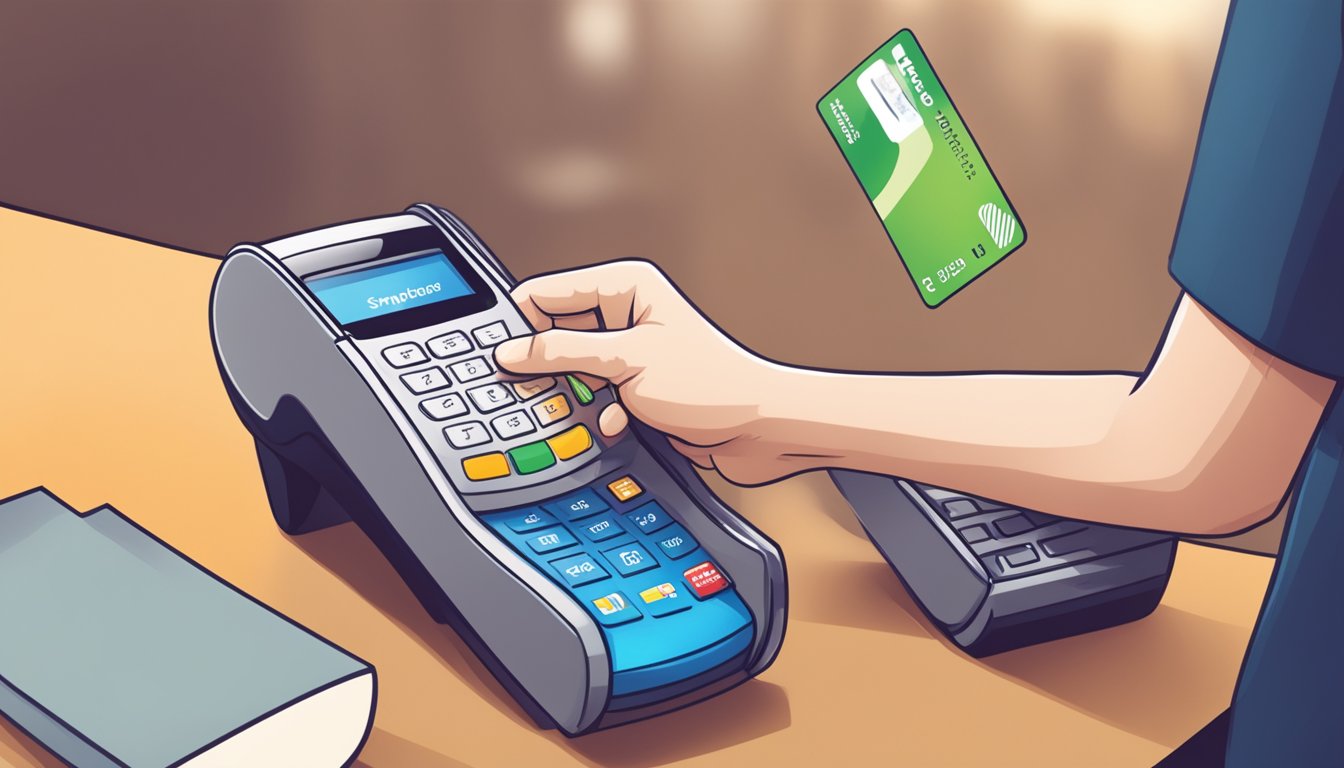
When it comes to credit card credit limits in Singapore, you want to make sure you’re getting the most out of your card. One way to do this is by maximising the benefits that come with it. Here are some ways you can do that:
Rewards and Cashback
Many credit cards offer rewards and cashback programs to help you save money on purchases. These rewards can come as points, which you can redeem for merchandise or cashback. Some cards also offer cashback on specific categories, such as groceries or petrol.
Ensure you understand your rewards program’s terms and conditions and take advantage of it when you can.
Miles and Travel Perks
If you’re someone who loves to travel, consider getting a credit card that offers miles or travel perks. You can earn miles on your purchases and redeem them for flights, hotel stays, and other travel expenses. Some cards also offer travel insurance and other perks like lounge access.
If you’re a frequent traveller, this can be a great way to save money.
Annual Fee Waivers and Offers
Many credit cards come with an annual fee, but some cards offer annual fee waivers or other offers that can help you save money. For example, some cards offer a waiver of the annual fee if you spend a certain amount on your card each year.
Others offer sign-up bonuses or other perks that can help offset the cost of the annual fee. Ensure you understand the terms and conditions of your card’s annual fee and take advantage of any offers to help you save money.
In summary, credit cards offer a range of benefits that can help you save money and make your life more convenient. By understanding your spending habits and taking advantage of the benefits that come with your card, you can maximise your credit card credit limit in Singapore and get the most out of your card.
Tip: Negotiate Your Limit
Don’t be afraid to request a credit limit increase after using your card responsibly for a period. Banks reward good credit behaviour! Regularly review your credit limit and request an increase if your income or spending habits justify it.
A higher limit can improve your credit utilisation ratio, another factor influencing your credit score.
Credit Limit Adjustment Options
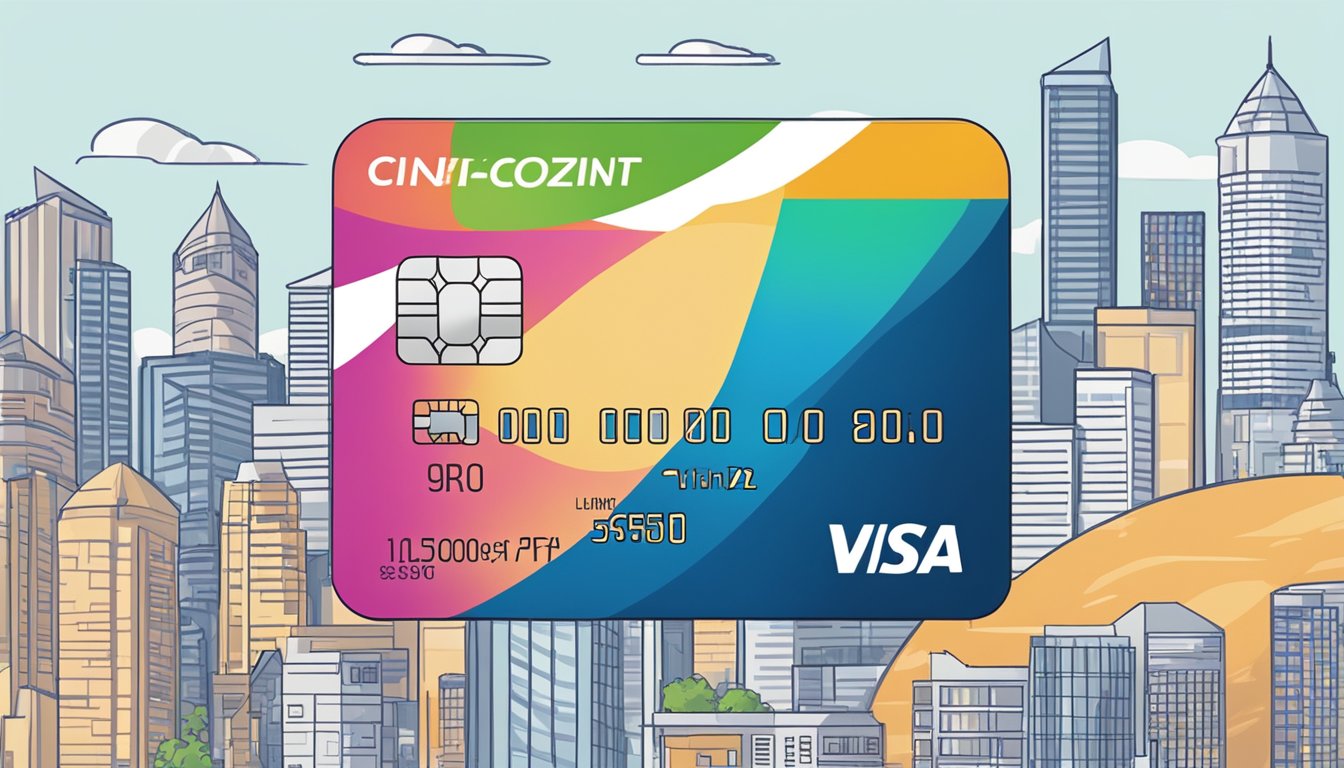
If you are looking to adjust your credit card limit in Singapore, there are a few options available to you. Whether you need a temporary increase to cover a large expense or a permanent increase to better manage your finances, here are some things you need to know:
Requesting a Credit Limit Increase
If you want to increase your credit card limit, you will need to contact your lender and request a credit limit review. This can be done by phone, online, or in person at a bank branch. Keep in mind that your lender will need to assess your income and credit history before approving any credit limit increase.
Temporary vs Permanent Limit Changes
If you need a credit limit increase for a short period of time, you may be able to request a temporary credit limit increase. This will allow you to make larger purchases or cover unexpected expenses without permanently increasing your credit limit. However, if you need a permanent credit limit increase, you will need to go through the credit limit review process.
When to Consider a Limit Decrease
While many people want to increase their credit limit, there may be times when it makes sense to consider a limit decrease. For example, if you are struggling to pay off your credit card debt, lowering your credit limit can help you avoid further debt. Additionally, if you are concerned about overspending, a lower credit limit can help you stay within your budget.
Overall, adjusting your credit card limit in Singapore can be a smart financial move. Whether you need a temporary or permanent credit limit increase, or you are considering a limit decrease, make sure to contact your lender and discuss your options. With the right credit limit in place, you can better manage your finances and achieve your financial goals.
Smart Credit Card Practices
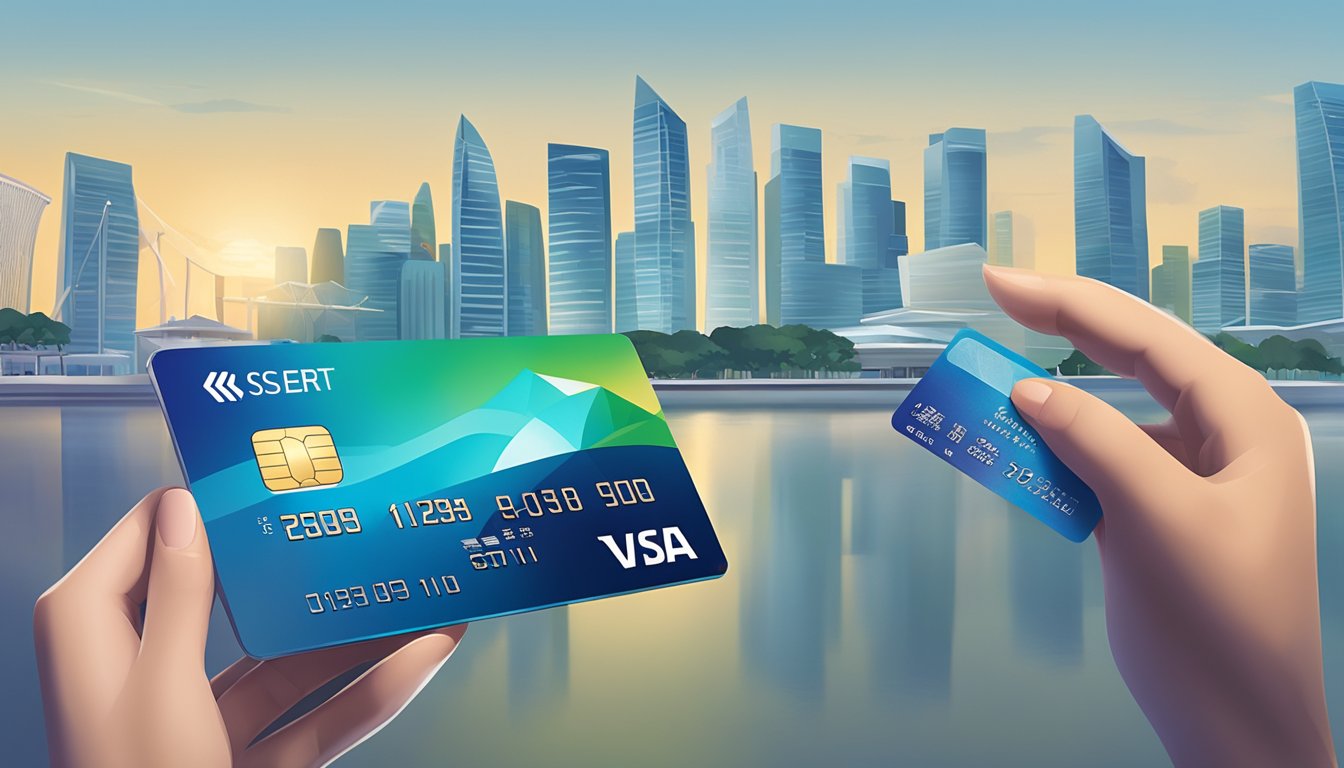
Credit cards can be a useful tool to improve your credit score and manage your finances. However, it’s important to use them responsibly to avoid falling into debt. Here are some smart credit card practices to help you make the most of your credit card:
Effective Spending and Payment Strategies
One of the most effective ways to manage your credit card is to spend within your means. Make sure you only use your credit card for purchases you can afford to pay off at the end of the billing cycle. This will help you avoid accumulating interest charges and falling into debt.
Another smart strategy is to pay your credit card bill in full and on time every month. This will help you avoid late fees and maintain a good credit score. You can set up automatic payments to ensure you never miss a payment.
Avoiding Common Credit Card Pitfalls
Credit cards can also be a source of temptation to overspend. To avoid this, set a budget for your monthly expenses and stick to it. You can also avoid impulse purchases by waiting 24 hours before making a purchase.
Another common pitfall is carrying a balance on your credit card. This can lead to high interest charges and debt accumulation. If you do carry a balance, try to pay it off as soon as possible to minimize interest charges.
Leveraging Flexible Payment Options
Many credit cards offer flexible payment options, such as instalment payment plans and pay later options. These can be useful tools to manage your finances and avoid falling into debt. However, it’s important to read the terms and conditions carefully and understand the interest charges and fees associated with these options.
In conclusion, by following these smart credit card practices, you can make the most of your credit card and avoid falling into debt. Remember to spend within your means, pay your bills on time, and leverage flexible payment options when necessary.
Navigating Credit Card Issues

As a credit card user in Singapore, you may encounter various issues with your card, such as disputing charges, understanding interest rates and fees, or cancelling your credit card. Here are some tips on how to navigate these issues:
Disputing Charges and Fraud Protection
If you notice any unauthorized transactions on your credit card statement, you should report them to your bank immediately. Most banks in Singapore have fraud protection measures in place to protect their customers from fraudulent activities. You can also dispute any incorrect charges on your statement by contacting your bank’s customer service department.
Understanding Interest Rates and Fees
It is important to understand the interest rates and fees associated with your credit card, as they can affect your outstanding balance and credit score. The interest rate is the amount charged by the bank for borrowing money, and it is usually expressed as an annual percentage rate (APR). You should also be aware of any other fees, such as late payment fees or annual fees, which can add up over time.
Credit Card Cancellation and Closure
If you decide to cancel your credit card, you should follow the guidelines set by your bank to avoid any penalties or charges. Some banks may require you to pay off your outstanding balance before closing your account, while others may allow you to transfer your balance to another credit card. It is also important to note that cancelling your credit card can affect your credit score, so you should consider the impact before making a decision.
Overall, it is important to be aware of the MAS regulations and guidelines related to credit cards in Singapore, as well as the terms and conditions set by your bank. By staying informed and taking proactive steps to manage your credit card, you can avoid potential issues and make the most of your credit card benefits.
Credit Cards and Lifestyle Choices

Are you tired of carrying cash around, or constantly worrying about exceeding your budget? Credit cards are a great solution to these problems. With a credit card, you can make purchases without worrying about running out of cash, and you can also enjoy various benefits and rewards.
Aligning Cards with Spending Habits
When choosing a credit card, it is important to align it with your spending habits. Different credit cards offer different benefits and rewards, such as cashback, miles, or rewards points. For example, if you frequently travel, you might want to consider a credit card that offers air miles and travel-related perks. On the other hand, if you prefer to dine out or shop online, a credit card that offers cashback or rewards points for these types of purchases might be more suitable.
The Convenience of Digital Payments
Digital payments have become increasingly popular in recent years, and credit cards are no exception. With a credit card, you can make online purchases, pay bills, and even transfer money to other people. This can save you time and hassle, as you don’t need to visit a physical bank or ATM to complete these transactions. Some credit cards also offer contactless payment, which allows you to make purchases by simply tapping your card on a payment terminal.
Maintaining a Good Credit History
Having a good credit history is important if you want to enjoy a high credit limit and qualify for better credit cards in the future. To maintain a good credit history, make sure to pay your bills on time, keep your credit card balances low, and avoid applying for too many credit cards at once. You can also sign up for email or text alerts to remind you of your due dates and card activation.
Credit card providers such as Visa and Mastercard offer a wide range of credit cards to suit different needs and preferences. UOB credit card, for example, offers various benefits such as cashback, rewards points, and exclusive deals. By choosing the right credit card and using it responsibly, you can increase your purchasing power and enjoy a more convenient and rewarding lifestyle.
Frequently Asked Questions
How can I discover the maximum credit limit available to me in Singapore?
The maximum credit limit available to you in Singapore depends on your income level. There is no universal upper limit for credit cards in Singapore, but rather, the maximum credit limit depends on your financial standing.
So, as long as you have the financial standing, you can ask for any credit card limit you want. You can check with your bank to find out what credit limit you are eligible for.
What’s the secret to getting the highest possible credit limit on my Singapore credit card?
There is no secret to getting the highest possible credit limit on your Singapore credit card. The credit limit you are eligible for depends on your income level and credit history. If you have a good credit history and a high income level, you may be eligible for a higher credit limit.
However, you should always borrow responsibly and only borrow what you can afford to pay back.
Could you tell me how my salary influences the credit limit I’m eligible for?
Your salary is one of the key factors that banks consider when determining your credit card limit. The higher your salary, the higher your credit limit is likely to be.
This is because banks consider your income level to be an indicator of your ability to repay your debts.
What factors do banks consider when determining my credit card limit?
Banks consider a range of factors when determining your credit card limit. These include your income level, credit history, credit score, employment status, and debt-to-income ratio.
The debt-to-income ratio is an important factor that banks consider, as it helps them determine your ability to repay your debts.
Are there specific regulations in Singapore that affect my credit card limit?
Yes, there are specific regulations in Singapore that affect your credit card limit. The Monetary Authority of Singapore (MAS) regulates the credit card industry in Singapore, and has set guidelines on the maximum credit limit that banks can offer.
According to MAS regulations, your unsecured credit facilities limit cannot exceed 12 times of your monthly income.
How does the Monetary Authority of Singapore (MAS) influence credit card limits?
The Monetary Authority of Singapore (MAS) plays a key role in regulating the credit card industry in Singapore. MAS sets guidelines on the maximum credit limit that banks can offer, and regulates the interest rates and fees that banks can charge on credit cards.
MAS also requires banks to perform credit assessments on customers before offering them credit cards, to ensure that they are able to repay their debts.
Maxed-Out Credit Card? Quick Credit Offers Reliable Personal Loans
Feeling overwhelmed by a maxed-out credit card? Singaporeans juggle busy lives, and sometimes, managing finances takes a backseat. But don’t fret! Quick Credit Pte Ltd is here to help you breathe easy again with our fast and reliable personal loans.
Quick Credit isn’t just another money lender. We’re a trusted and legal, fully licensed lender by Singapore’s Ministry of Law. We understand the challenges of maxed-out credit cards, and that’s why we offer:
- Quick Relief: Our streamlined application process gets you approved fast, often within 24 hours.
- Fair and Transparent Rates: No hidden fees, just clear and competitive rates you can feel good about.
- Nationwide Support: We serve all of Singapore! Quick Credit is here for you whether you’re in bustling Jurong or sunny Sentosa.
To qualify for a Quick Credit personal loan, you’ll simply need to meet some basic criteria:
- Be a Singaporean citizen or permanent resident
- Have a minimum monthly income
- Maintain a good credit history (even with maxed-out credit cards, we can still help!)
So, don’t let debt hold you back. Apply for a Personal Loan Online or Visit Us Today!
